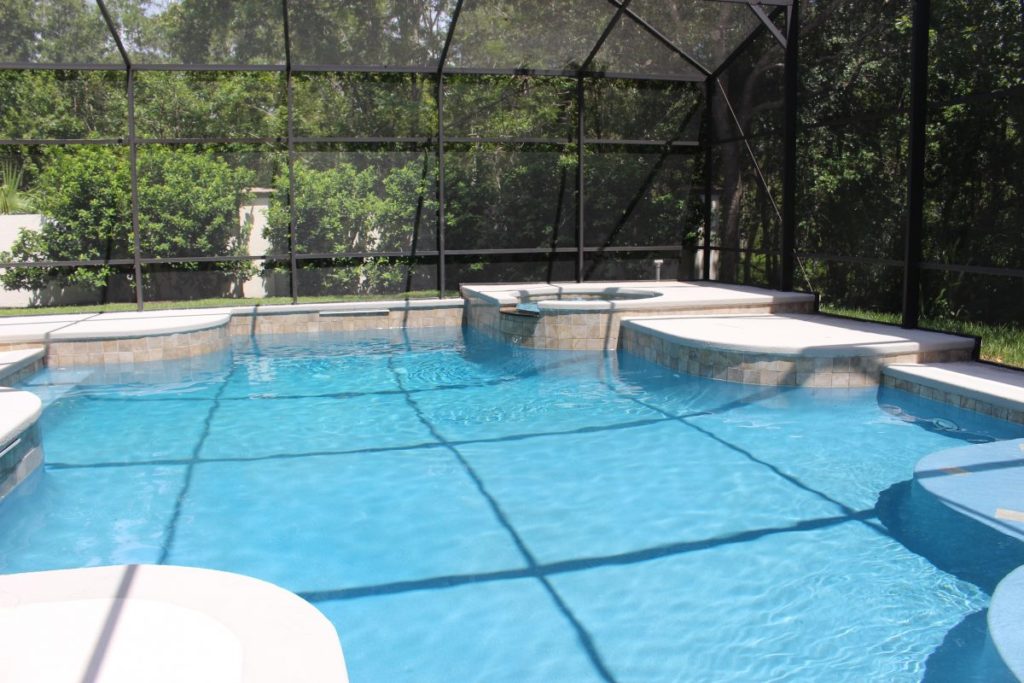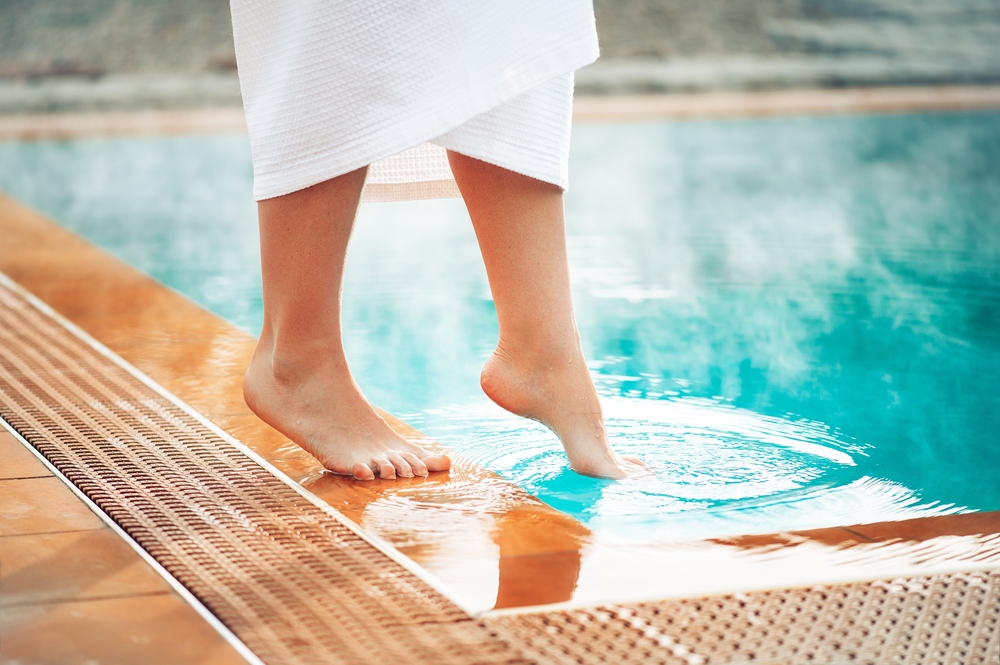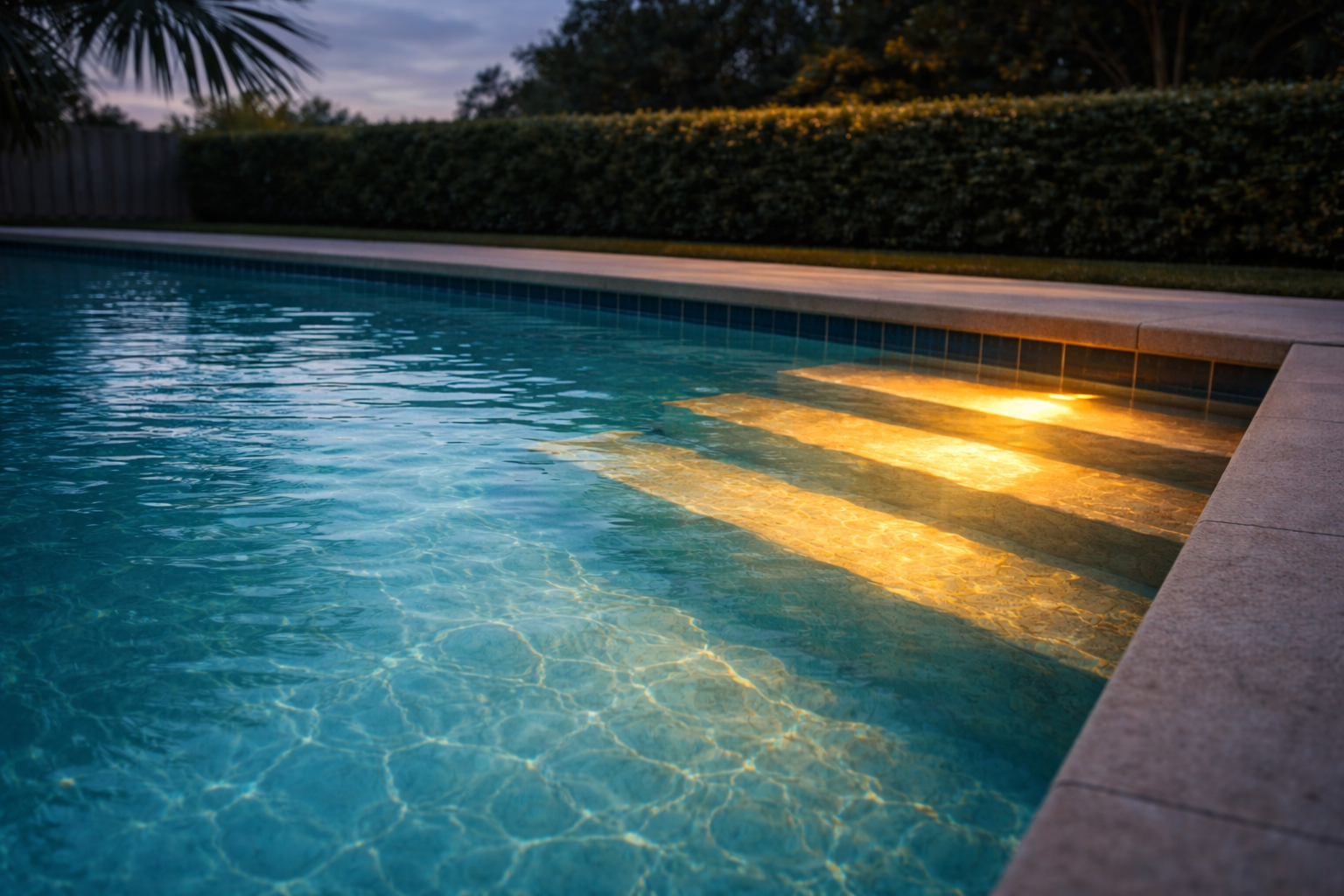Choosing between a saltwater or chlorine pool can feel like a never-ending pro-con list for homeowners but it doesn’t have to end in confusion.
A saltwater pool uses a salt chlorinator, which converts salt into chlorine to naturally sanitize the water. By using salt, pool owners effectively minimize the amount of direct chemical handling. Most saltwater pool owners highlight the “silkier” feel of saltwater, which may also be overall more gentle on skin and eyes than traditional chlorine, especially for those with sensitivities.
Saltwater pools have a lower long-term cost than their chlorinated counterpart. Installation is slightly higher, but the savings show up in the reduced need for chlorine tablets and other chemicals.
Chlorine pools use chlorine tablets to disinfect the water. Chlorine acts quickly to kill bacteria and maintain clean water which is particularly crucial in Central Florida’s warm climate. Overall, chlorine pools are affordable as chlorine tablets are readily available. Initial setup and maintenance is more budget-friendly with a chlorine pool, though the cost of chemicals can increase over time. Additionally, chlorine does have a very strong smell which can be bothersome, and improper handling can irritate skin and eyes.
Saltwater pools have a slightly higher initial carbon footprint due to manufacturing, but ongoing chemical use in chlorine pools can also have an impact on the environment.
Comparatively, saltwater can be corrosive to certain pool components, such as those made of metal, requiring careful selection and maintenance of equipment. Of note, salt cells do require occasional replacement.
Central Florida’s warm weather and high humidity create a breeding ground for bacteria. Swim N Fun advises that chlorine and saltwater pools can effectively sanitize under proper maintenance, but chlorine’s faster-acting nature might be preferred for frequent pool users or those hosting large gatherings.
Both options require routine upkeep. Saltwater systems need regular cell cleaning, while chlorine requires consistent chemical balancing. Choose a system you can commit to maintaining.
Before you make a final choice, consider your family’s needs. If skin sensitivity is a concern, saltwater might be ideal. If budget is a primary factor, chlorine might be the winner.
If you’re still on the fence about which is better for you, don’t hesitate to schedule a consultation with Swim N Fun’s experienced staff to help you assess your specific needs, budget, and property to recommend the perfect pool solution.
There’s no one-size-fits-all answer. Both saltwater and chlorine pools offer distinct advantages and disadvantages. By understanding your priorities, consulting experts like Swim N Fun, and considering Central Florida’s unique climate, you can make an informed decision that creates a backyard oasis perfect for years of refreshing enjoyment.
About Swim N Fun:
Owning an inground pool in Central Florida is a sizeable investment. Owning a pool comes with unique challenges due to e our climate and environmental conditions. By staying proactive and investing in regular maintenance, pool owners can address common issues quickly to keep their pools in the best shape all year. Regular professional inspections, prompt repairs, and the use of quality materials are key to preserving the integrity and longevity of inground pools in the Sunshine State.
Swim ‘N Fun is fully licensed and insured and has been serving Central Florida since 1986. Our pool company is ready to help you with any pool repairs that you may need such as repairing a broken pool pump, pool filter, pool vacuum, pool filtration system or pool lights. Our pool technicians will arrive at your home in our fully stocked service trucks. They will evaluate the problem and then make the repair. Many times, an extensive or expensive pool repair is not needed. No job is too big or too small!
We service all major brands. Let us help you with your pool repairs. Please give us a call at 407-699-5588.





